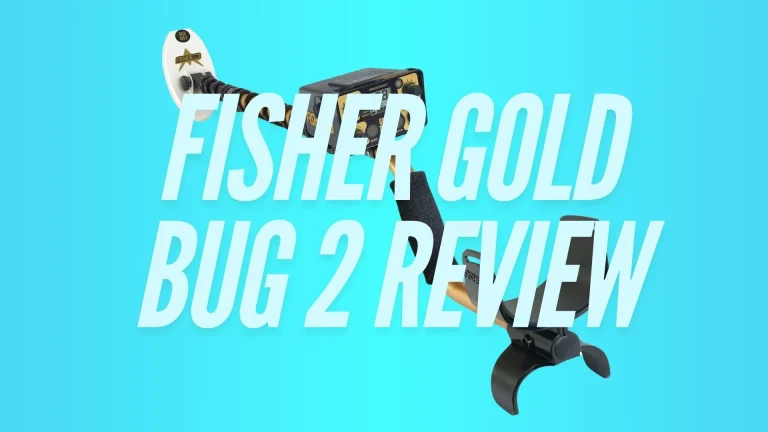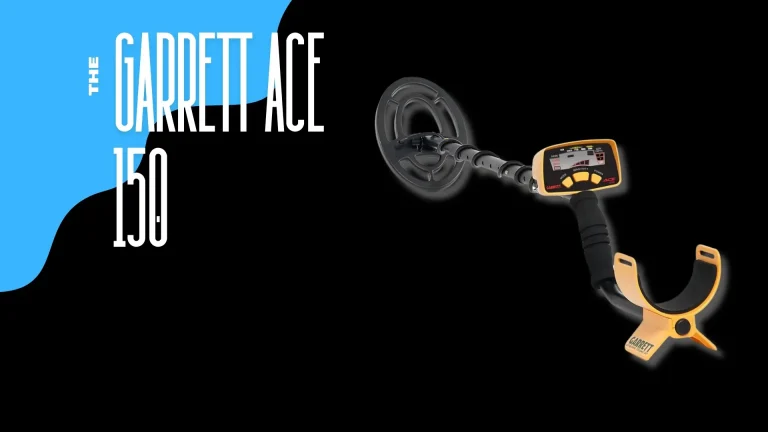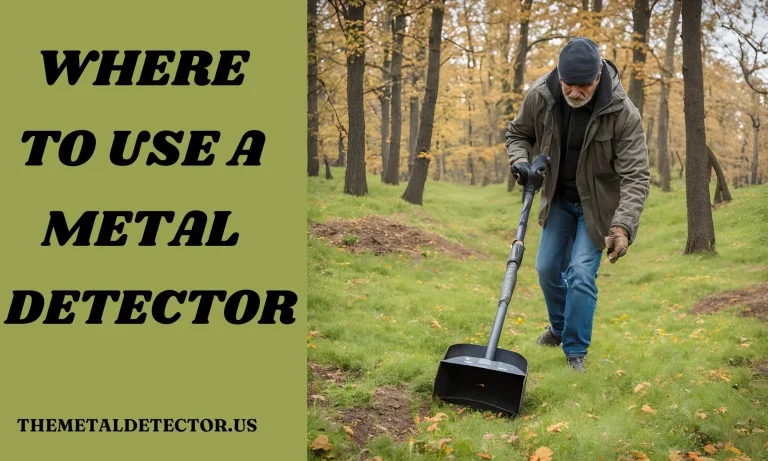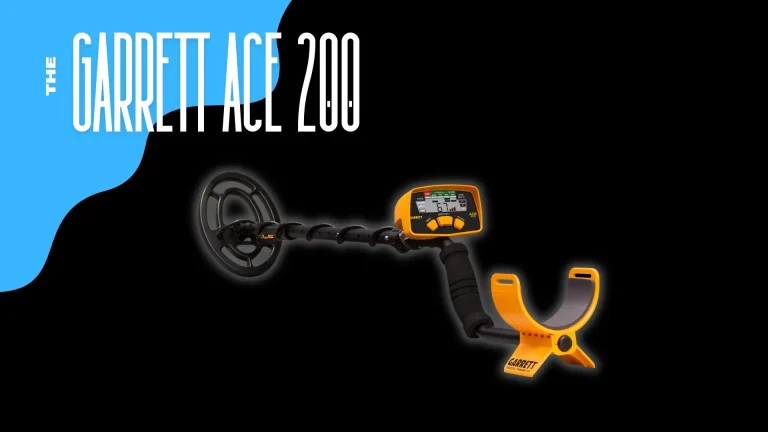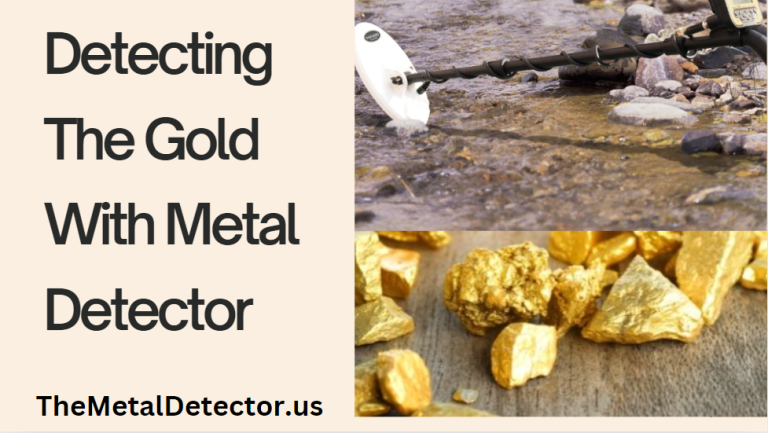How to Detect Metal on The Beach | 2025 Guide
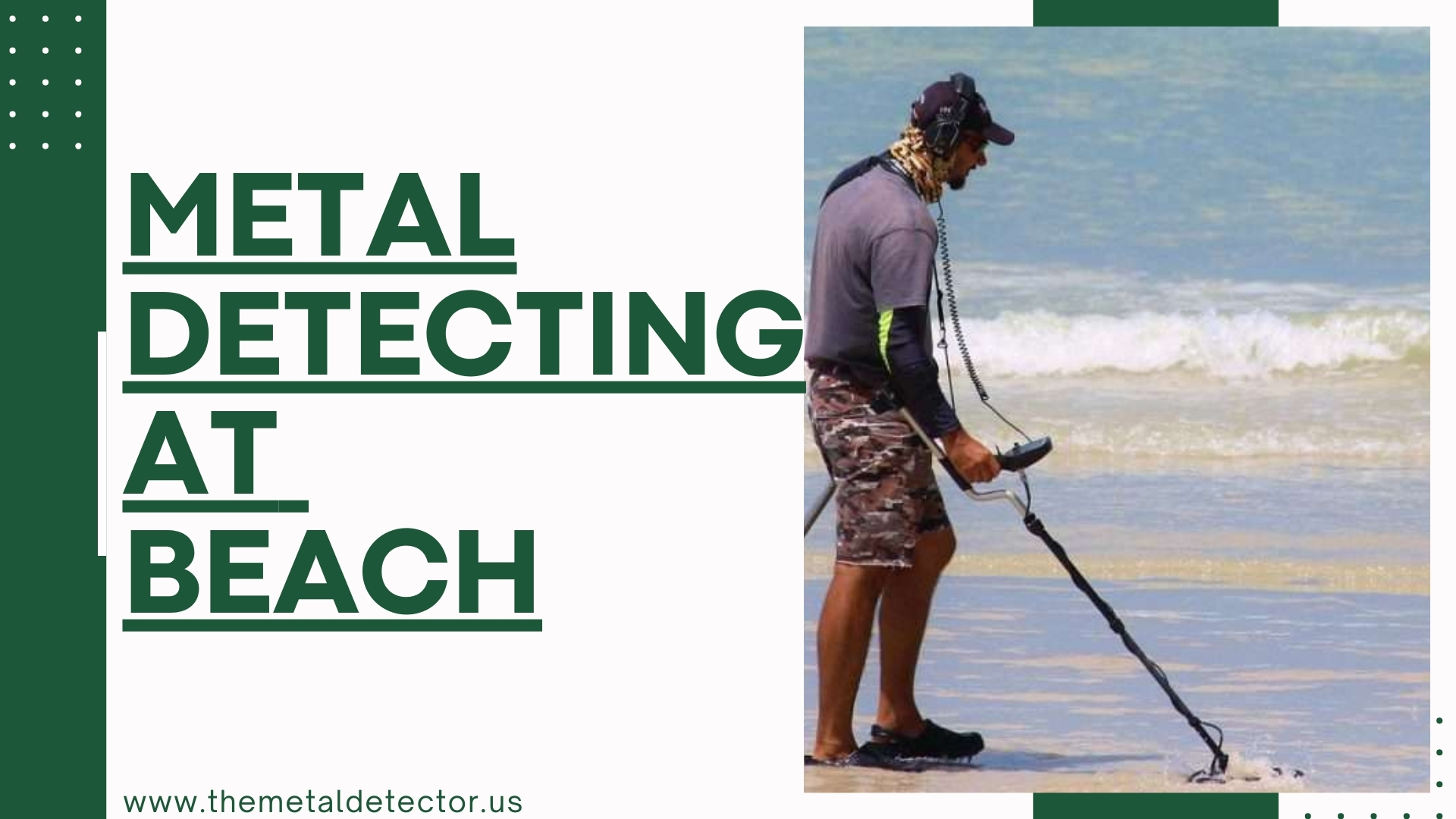
Have you ever wondered how to detect metal on the beach and what treasures might be hiding just beneath your feet on the beach? Metal detecting on the beach is a fun and exciting way to discover hidden gems while enjoying the sun and sand. Whether it’s coins, jewellery, or old relics, the beach is full of surprises waiting to be found. Every sweep of your metal detector could lead to an interesting discovery.
Beach metal detecting is more than a hobby; it is a way to enjoy the outdoors while searching for hidden treasures. The waves and sand are always changing, so new items can be uncovered every day. It’s not just about what you find, but the fun of searching. Whether you are with family or exploring on your own, metal detecting can make a beach day more exciting.
In this article, I will walk you through a guide on how you can detect metal on beaches efficiently while enjoying nature.
Tips for Metal Detecting in Different Parts of the Beach
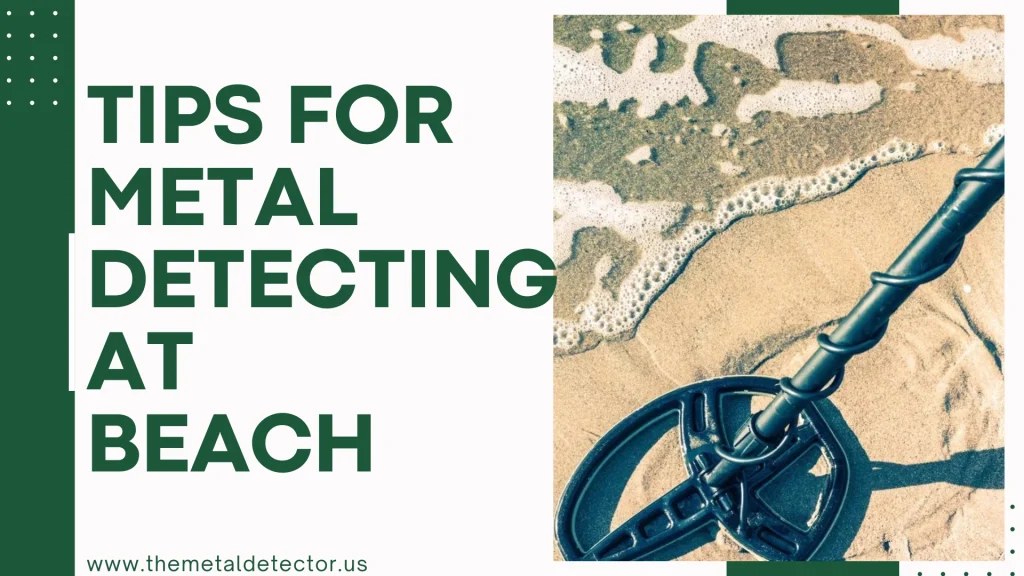
Beach metal detecting can be exciting if you know where to search. Different parts of the beach hold different treasures. Below are some tips for finding treasure in various areas of the beach. Let’s break it down:
Dry Sand Tips
Towel Line Tips
Wet Sand Tips
Coin and Treasure Line Tips
Water Line Tips
Each part of the beach offers a different challenge and reward. With these tips, you will be ready to hunt treasure in every section!
Buy the best Fisher F22 metal detector from out website.
What are the Best Times to Hunt on Saltwater Beaches?
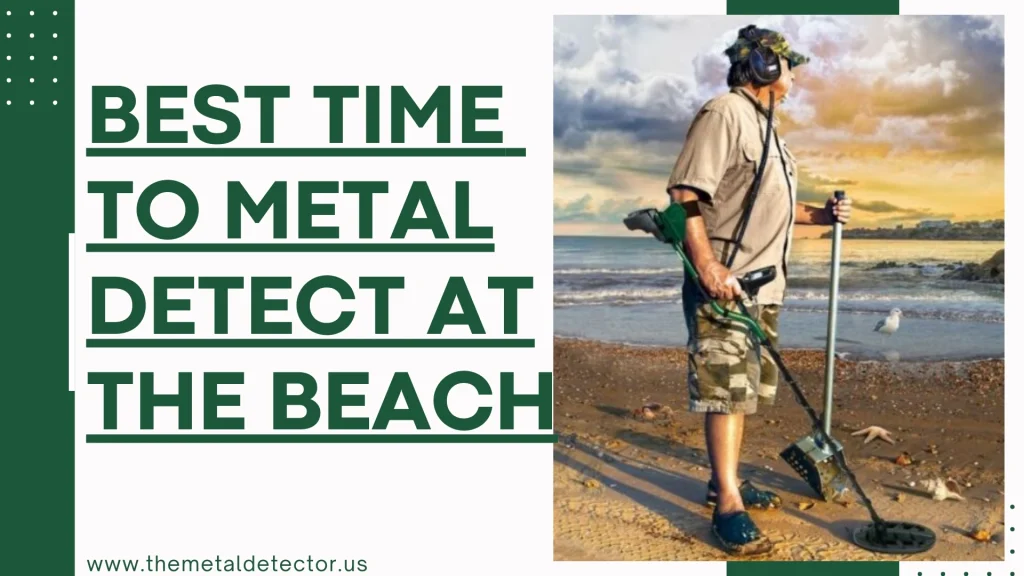
Timing is key when learning how to metal detect on the beach. The ocean constantly moves, changing the landscape and hiding or revealing treasures. But when should you hunt for the best results? Let’s explore the best times to hunt on saltwater beaches and some tips for each situation.
Low Tide Tips
Low tide is one of the best times for metal detection on a beach. During low tide, the water pulls back, exposing parts of the beach that are normally underwater. This is a great time to search because of items like coins, jewellery, and other lost valuables items.
To make the most out of low tide:
High Tide Tips
Hunting during high tide can be more challenging, but it can also be rewarding. High tide pushes the water closer to the shore, covering most of the beach. If you want to hunt during this time, you will likely need waterproof gear or a detector designed for underwater use.
Here are some tips for hunting during high tide:
Tips on Storms
Storms can be a metal detector’s best friend. After a storm, the strong waves often stir up the sand, revealing treasures that were buried too deep to find before. Big storms can even wash up items that have been lost for years.
If you plan to hunt after a storm:
Local Rules and Regulations of Beach Metal Detecting
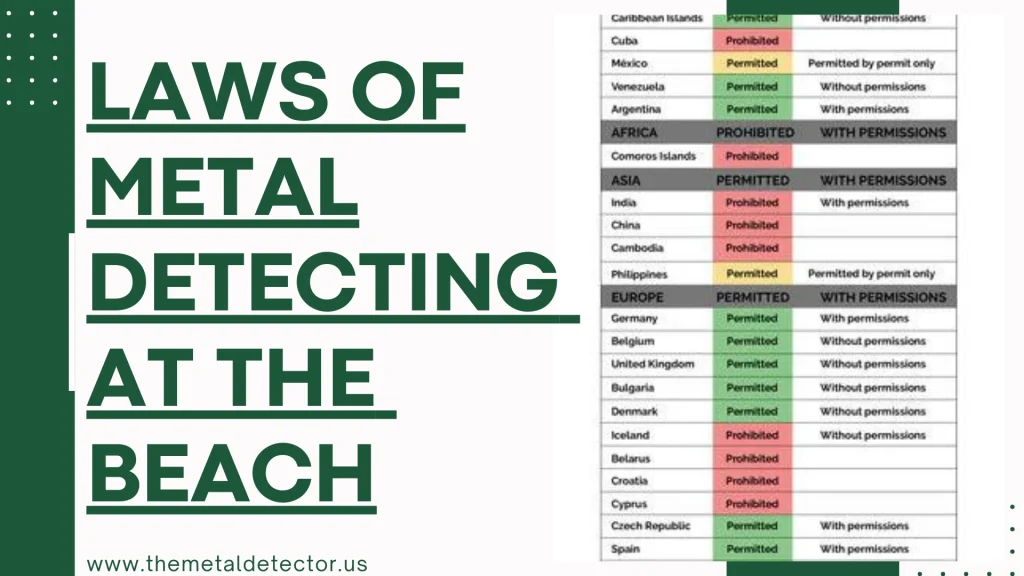
Before heading out with your metal detector to explore beaches, it’s important to understand the local rules and regulations. These rules exist to protect the environment, and history, and ensure that everyone can enjoy the beach safely. Let’s go over the main points you should know.
Local Beaches and State Parks
Each beach can have different rules about metal detecting. Some beaches allow it, while others don’t. It is important to always check the local rules before you start detecting. You can do this by:
If you are planning to detect in a state or national park, be aware that many of these places have stricter rules. You may need a permit to use your metal detector in these areas. Getting a permit is usually easy, but always check first.
Private Property Rules
Not all beaches are open to the public. Some are on private land, and detecting on these beaches requires permission from the owner. Never enter private property without permission, as this could lead to legal trouble. Always ask the landowner first.
Ethical Guidelines
When you are metal detecting, it’s important to follow certain ethical rules:
Special Rules in Certain Areas
Some places, like Florida’s Treasure Coast, have very strict rules. This area is famous for lost treasures, but detecting in the water or on certain parts of the beach is not allowed. Florida law says that any treasure over 50 years old belongs to the state. Always check local rules before detecting in places like this.
Proper Beach Metal Detecting Etiquette
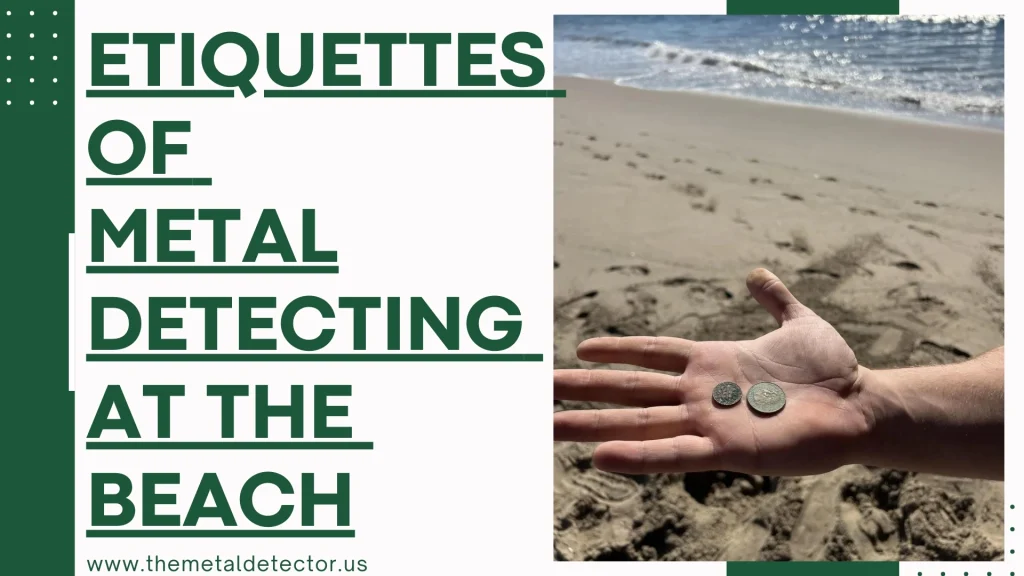
Beach metal detecting is a fun activity, but it’s important to follow proper etiquette. This ensures you respect others on the beach and the environment around you. Here are some simple tips to help you detect responsibly.
Respect Personal Space
When metal detecting, be mindful of others around you. Avoid getting too close to people relaxing or playing. Give them plenty of space to enjoy their time at the beach.
Use Headphones
Always use headphones while detecting. This will keep the beeping noises from disturbing others. It also helps you hear the faint signals from buried items.
Fill Your Holes
When you dig a hole to retrieve an item, make sure to fill it back in. Open holes can be a tripping hazard, especially for kids or those running on the beach.
Pick Up Trash
If you find trash while detecting, take it with you and dispose of it properly. Leaving the beach cleaner than you found it helps the environment and gives metal detecting a good reputation.
Ask for Permission
If you are detecting on private property or restricted areas, always ask for permission first. This applies even to certain public beaches where rules may be in place.
Report Valuable Finds
If you find valuable items like jewellery or personal belongings, try to return them to their rightful owners. You can check with local authorities or post about the lost item online.
Dig Carefully
When you get a signal, dig gently. You don’t want to damage the item you are uncovering, and it’s important to keep the beach looking neat.
Time Your Search
Detecting during low tide can expose more buried objects. Also, try to detect when fewer people are on the beach, like early mornings or evenings.
Best Types of Metal Detectors to Use on the Beach
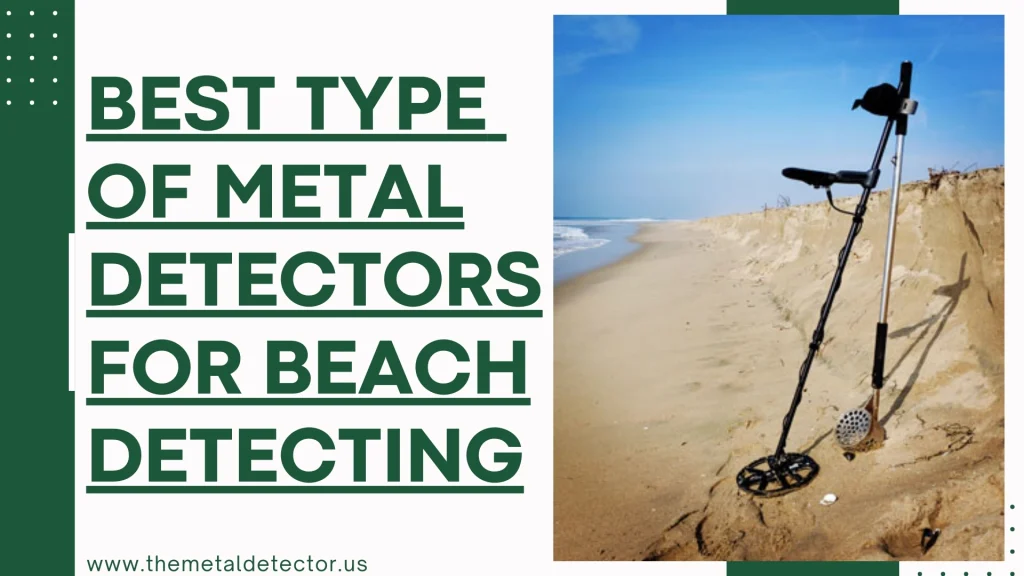
When it comes to metal detecting on the beach, using the right type of metal detector is important. Different detectors work better in different conditions, especially when dealing with saltwater and sand. Below are some of the best types of metal detectors to use on the beach, each with its own advantages.
VLF Metal Detectors
VLF stands for Very Low Frequency. These detectors are popular because they are affordable and can find coins, jewellery, and relics easily. VLF metal detectors work well on freshwater beaches and dry sand. However, they may give false signals on wet, salty sand because of the minerals in the water.
To avoid false signals, many VLF detectors have a ground balance feature. Ground balance helps to ignore the minerals in the sand so you can find real treasures. Some advanced VLF models, like the Garrett AT Pro, even show you what type of metal is buried under the sand, saving you time digging.
Popular VLF metal detectors for the beach include:
Pulse Induction Metal Detectors
Pulse Induction (PI) metal detectors are great for saltwater beaches. Unlike VLF detectors, they do not react to the salt in the sand, making them perfect for wet sand and diving. PI detectors can find metals buried deep, which makes them excellent for tough beach conditions.
The downside of PI detectors is that they cannot easily tell the difference between junk, like nails, and valuable items like gold. This means you might have to dig more, but you are less likely to miss something valuable.
Some recommended PI metal detectors for beach use are:
Magnetometers
Magnetometers are special detectors that are used to find iron and steel objects deep underground or underwater. These devices are not usually used for finding coins or jewellery but are perfect for locating shipwrecks or large metal objects in the ocean. Magnetometers are useful for professionals who are searching for treasures buried deep in the sea.
These tools are not ideal for everyday beach detecting but are important for big underwater search projects.
Best Metal Detector Settings for Beach
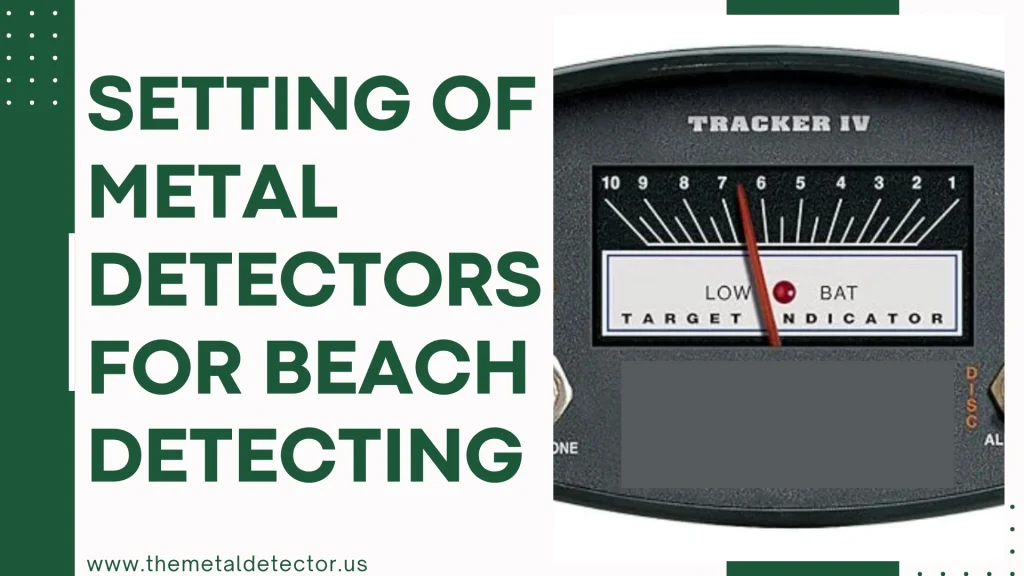
Metal detecting on the beach is a fun and rewarding activity. However, the beach environment can be tricky. The following tips will help you get the best results from your metal detector while searching for treasure on the sand.
Choose the Right Detector
A waterproof or submersible metal detector is ideal for beach detection. These detectors handle wet conditions better and allow you to search in shallow water. Multi-frequency or pulse induction detectors also work well since they reduce false signals from saltwater.
Use Low Discrimination
Keep your metal detector’s discrimination setting low or turn it off completely. This helps you avoid missing valuable targets like gold. Unfortunately, gold and trash-like pull tabs often have similar signals. The more you dig, the more you will find.
Watch for False Signals
Beaches have minerals that can produce false signals. Movement, other metal detectors, or nearby electronics can also cause these signals. Always listen for a clear and repeatable sound before digging.
Approach from Different Angles
Before digging, approach the target from several angles. This will help you avoid digging for false signals or objects that aren’t there.
Time Your Search
The best time to search the beach is around low tide. About two hours before and after low tide, more of the beach is exposed, increasing your chances of finding something valuable.
Adjust Ground Balance
Beaches, especially those with salt water, can confuse metal detectors due to their high mineral content. Use the ground balance feature on your detector to reduce this interference.
Accessories Are Helpful
A sand scoop is a must-have accessory. It helps you dig up targets without using your hands. A pinpointer is also useful for finding small objects in the sand. Headphones can block out beach noise and help you hear faint signals.
Fill Your Holes
Always dig small holes, and fill them in after you are done. This keeps the beach safe and clean for others.
Top 10 Hot Spots to Metal Detect at the Beach
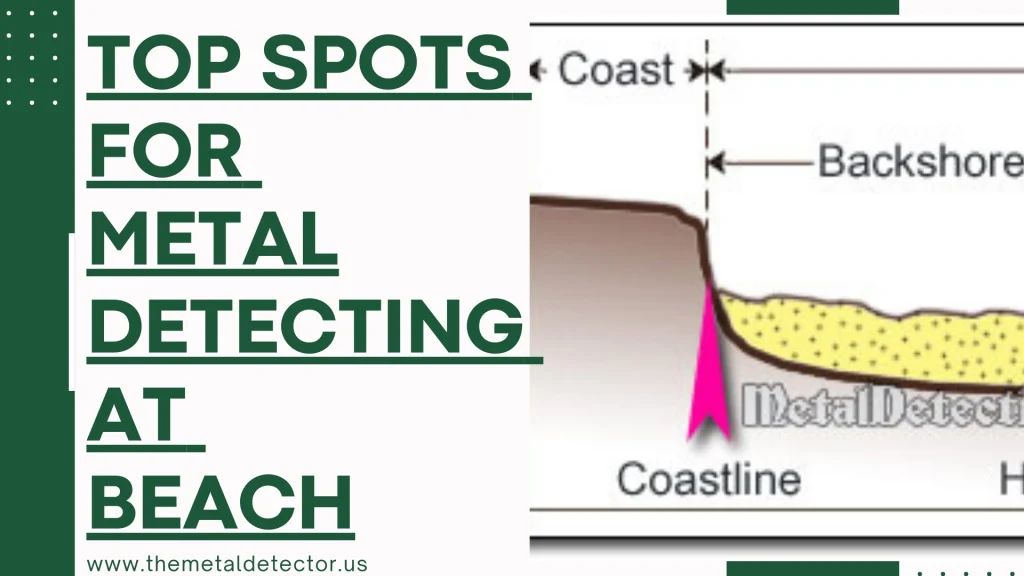
When metal detecting on the beach, knowing where to search can make all the difference. Some areas are more likely to hide treasures than others. Here are the top 10 hot spots you should explore on your next beach adventure.
Conclusion (How to Detect Metal on The Beach)
Metal detecting on the beach can be a fun and rewarding hobby if you follow the right steps. By focusing on the best areas like towel lines, wet sand, and tidal pools, you increase your chances of finding hidden treasures. Always consider the local rules, use the proper equipment, and remember to search at the right times, like during low tide or after storms.
Whether you are a beginner or experienced, every beach trip offers new surprises, and with the right approach, you could uncover something special!

